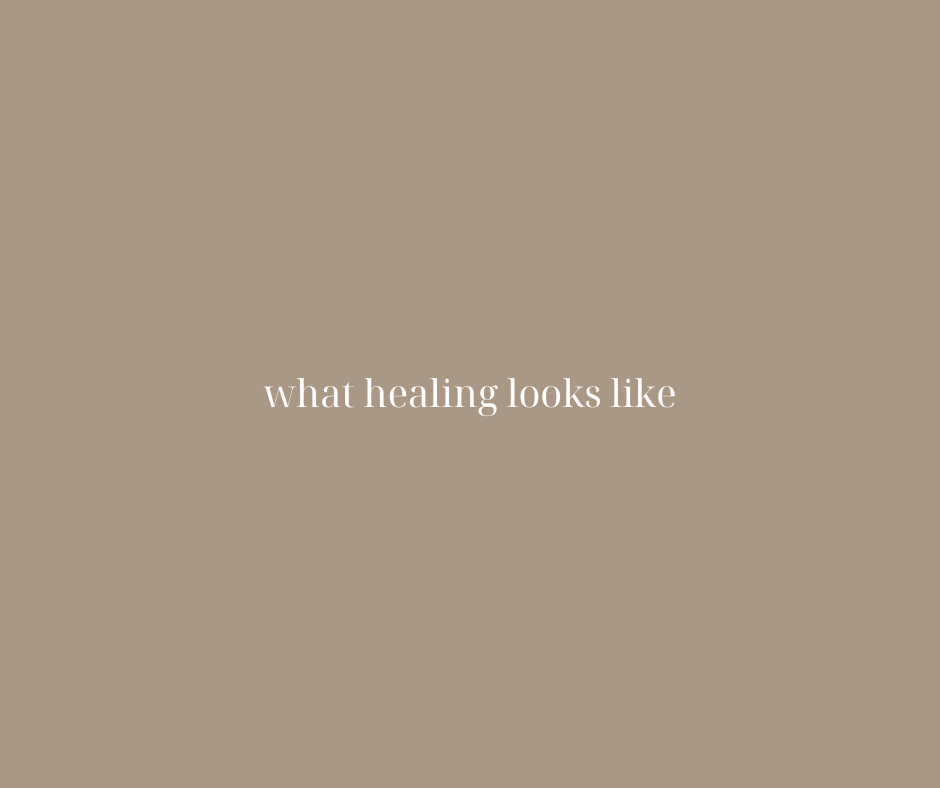If you’ve been following along on my posts this past summer, perhaps you’ve wondered how I’m doing.
It’s hard to go a day without someone asking, how are you?
I always hesitate when people ask because I don’t give palatable answers, which leaves people very uncomfortable. Some responses I remember saying made me laugh after I walked away seeing their faces of horror:
“I cried myself to sleep last night.”
“I’m numb right now.”
“I’m not sure what to do with my anger.”
If we’re honest, many days we’re doing well and we mean it.
But when we know someone is going through something, what we’re really questioning is whether they’re ‘better.’ We are curious if they’ve moved on; if they’re back to who they were before. And if you’re anything like me, you wonder this for yourself.
The older I get, the more I understand that ‘how we are’ is really a question of where we are on our healing journey. And our healing journey is really a journey of grieving.
Life is a journey of grieving. We are a journey of grieving.
I remember learning about grief in my masters program and thinking I understood it enough to help other people. Funny how you ‘master’ something you’ve never experienced.
Having walked through much grief since, I know the experience of psychologist Kubler-Ross’ 5 Stages of Grief: denial, anger, bargaining, depression, and acceptance.
However, in our class full of counselors-to-be, we weren’t told about how these stages aren’t linear or how they don’t have an official ending. Nor did we learn another aspect of grieving I have found to be healing.
As we live with grief, we heal. Grief doesn’t magically go away, we learn to live with it, almost like an uninvited guest we don’t want to know. We learn what she feels like and sounds like; how she unexpectedly shows up unannounced at the dinner table, in the shower, on a phone call, or at the game.
Her appearance doesn’t mean we aren’t healed; it means we’re alive.
And if we’re still living it, perhaps there’s something there.
As time goes on I’ve found that my healing journey includes what Kubler-Ross later realized she was missing in the stages of grief:
Meaning.
Oftentimes, how we are is related to knowing whether our suffering is teaching us anything. Is this pain purposeful?
Maybe someday we find that our grief is a gift here on earth. Our suffering may help us relate to others’ suffering, it might soften our edges, makes us better mothers or friends, or give back in ways we never would have otherwise.
But even if we doubt that there could ever be a purpose for the pain we’ve endured, there is a deeper meaning which quietly carries us through our lifelong healing journey.
Our breaking reminds us of the One already broken for us.
When life feels like it’s fallen apart, who else can we turn to? Where else can we possibly go? It is only when we have lost what we thought was true that we see Jesus more clearly.
He is all we’ve got; He is all we need.
And oh, the meaning we find there.
So where am I at in my healing journey?
I (and my husband) still have so many questions. We wonder what all of this has been for. Will these stories be left without a closure? How can denial be an answer for so many people we respected?
And yet…
…many women who’ve attended Hillcrest Lutheran Academy have found freedom through sharing their stories of abuse from decades past. I’ve become more sober-minded and more discerning. I’m less likely to commit to something until I’ve examined it thoroughly. My marriage is stronger and our kids are wiser. My circle of ride-or-die friends is legit.
But mostly; most importantly, my trust in the Lord has grown.
At times I am still overcome with profound sadness and sometimes righteous anger. Tears still drench my pillow and I linger longer at than I’d like to admit before having to go into the store. I still get anxious and wonder if I’m still depressed.
Can we say it’ll get better some day? I want to believe that, and it may.
But for me, and I pray for us, we can know that healing looks like a journey. It’s not a poetic response of pure beauty when someone asks how you are. It’s not always a tied-up bow others find attractive. Healing is often edgy, complicated, unending, and unseen.
Surrender more, deny yourself, and come back to Him again.
This is your healing, and it has purpose.

LEAVE A COMMENT
Comments